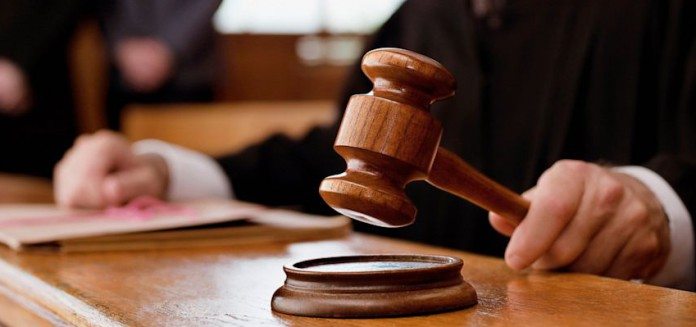Article updated
This article has been updated since it was first published on September 14, 2020. The most recent update was added on October 31, 2022. Read the updates for this article.

On September 4, 2020, AudioEye, Inc. sued accessiBe, Ltd for patent infringement. The lawsuit between these two very well-funded digital accessibility companies was filed in the United States District Court for the Western District of Texas and reported in Justia Dockets and Filings.
- Read the September 4, 2020 complaint in AudioEye v. accessiBe. (An amended complaint was filed 3 days later).
- If you’re not familiar with accessiBe, I wrote about that company and others like it in my post titled Honor the ADA, Avoid Web Accessibility Quick Fix Overlays.
The Complaint says that accessiBe has infringed three patents held by AudioEye. It describes the most recent patent as follows:
AudioEye is the owner by assignment of all right, title, and interest in and to U.S. Patent No. 10,762,280 entitled “Systems, Devices, and Methods for Facilitating Website Remediation and Promoting Assistive Technologies” (“the ’280 patent”), which the United States Patent and Trademark Office lawfully and duly issued on September 1, 2020.AudioEye v. accessiBe complaint, paragraph 15
Spending Accessibility Dollars
In 2018 AudioEye announced a 6.5 million dollar “growth equity financing. Two years earlier the company announced 1.5 million dollar “equity financing.” As for accessiBe, it announced it’s own 12 million dollar funding in May of 2020.
That’s a lot of money. We already know millions of it is going to the sales and marketing side of things. And now some of that money is no doubt going to lawyers to battle it out in a lawsuit.
Imagine. What if funders instead invested in building accessibility capacity and true digital inclusion with disabled people? No hard sell. No battle-ground litigation. Just money to make the digital world work for everyone.
Imagine.
share on linkedinshare on bluesky
Updates to this article
October 31, 2022 Update
As of the end of October, 2022, court records show that Audio Eye’s case against AccessiBe was settled. Correction. (There are two case numbers associated with the case. No. 6:22-cv-06116-FPG in the Western District of New York, and No. 6:21-cv-00726-ADA-DTG in the Western district of Texas. Both were settled and dismissed as far as I can tell. (Please send any corrections through the Contact page of this website.)
December 30, 2021 Update
The patent infringement lawsuit filed by AudioEye against AccessiBe described in this post continues to wind its way through the court system. A recent court order descrbied AudioEye’s claims as: “asserting patent infringement claims, Lanham Act claims of false advertising and product disparagement, and New York state law claims of product disparagement, slander/defamation, tortious interference with prospective economic advantage, deceptive business practices, and unjust enrichment.”
The court order, issued on December, 2021 was about a technical issue of which court the case should be heard in. The lawsuit was filed in federal court in Texas but AccessiBe wants the case to be transferred to New York.
The court order linked here a federal appeals court decided it would not move the case to New York, but also said AccessiBe could ask a different court to move the case. (This case illustrates the complexities of the litigation system in the United States and reminds me why I so much prefer to resolve disputes in Structured Negotiation!).
Read the December 6 2021 Court order in the Audio Eye vs AccessiBe case
Unrelated to this patent infringement case, AudioEye has its own legal problems. Its overlay was used by human resource giant ADP but did not protect ADP from a lawsuit by blind employees. The suit against ADP settled and the agreement specifically states: “For the purpose of this Agreement, “overlay” solutions such as those currently provided by companies such as AudioEye and AccessiBe will not suffice to achieve Accessibility.’ Read the article on this website about the ADP settlement.